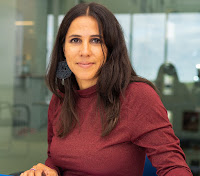- The Grimkes: The Legacy of Slavery in an American Family
- Wednesday, June 5, 2024. 12pm - 1:00pm
- In-person and virtual event. No registration required.
- State Library of Massachusetts - Room 341, Massachusetts State House
- Livestream: https://www.youtube.com/user/mastatelibrary
The
State Library of Massachusetts Author Talks Series is excited to host Dr. Kerri
K. Greenidge - historian, professor, and author of the 2023 book, The Grimkes: The Legacy of Slavery in an
American Family.
About the book: The Grimke Sisters, Sarah and Angelina, are well-known names in the history of the nation’s abolitionist movement. The sisters were born into a wealthy plantation owning family in South Carolina; their childhood experience influencing their abolitionist rhetoric that would sweep the North. However, author and historian, Kerri Greenidge, tells the story of the sisters’ black relatives. The brother of Sarah and Angelina had three sons with the woman he owned, Nancy Weston. Greenidge tells the story of the three sons who would go on to become prominent members of society, but Greenidge specifically focuses on the black women of the Grimke family. The Grimkes is a complex biography of an American family highlighting the contradictions in the abolitionist movement.
About the author: Kerri Greenidge is Mellon Associate Professor in the Department of Studies in Race, Colonialism, and Diaspora at Tufts University, and co-directs the African American Trail Project and Tufts’ Slavery, Colonialism, and Their Legacies Project. Greenidge is an award-winning historian. Her 2019 book Black Radical: The Life and Times of William Monroe Trotter received the Mark Lynton Prize in History, the Massachusetts Book Award, the J. Anthony Lukas Award, the Sperber Award from Fordham University, and the Peter J. Gomes Book Prize from the Massachusetts Historical Society. Her writings have appeared in the Massachusetts Historical Review, the Radical History Review, the New Yorker, the Atlantic, and the Guardian. For more on Greenidge, visit her professional site.
If you are able to join us in person for this talk, attendees will be able to participate in a question-and-answer session with the author as well as purchase a copy of The Grimkes. Venmo will be accepted. As always, this author talk is free and open to all. Assisted listening devices will be made available upon request. Any questions or concerns, please email us.
Want to stay up to date on future Author Talks at the State Library? Join our mailing list. Also follow us on Instagram, X, or Facebook for updates! For more information on the State Library Author talks series, please visit our site.
Author Talks Working Group













.jpg)
.jpg)


